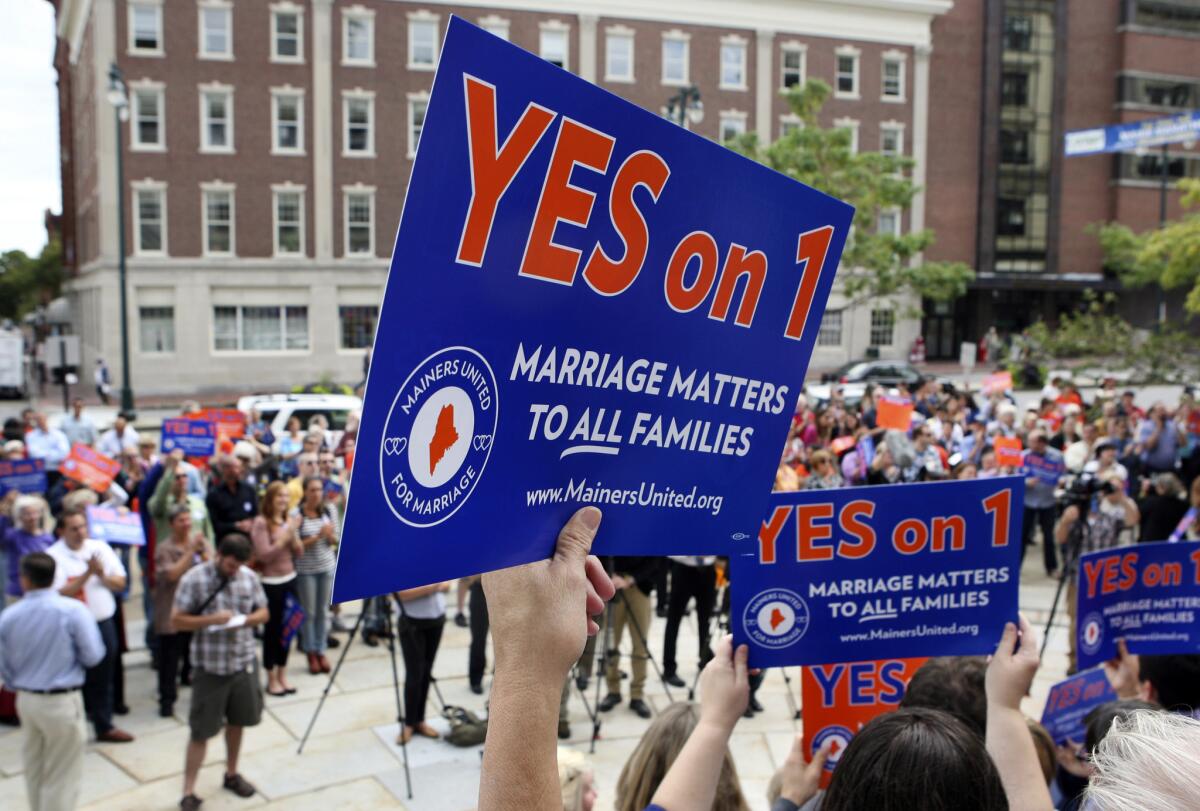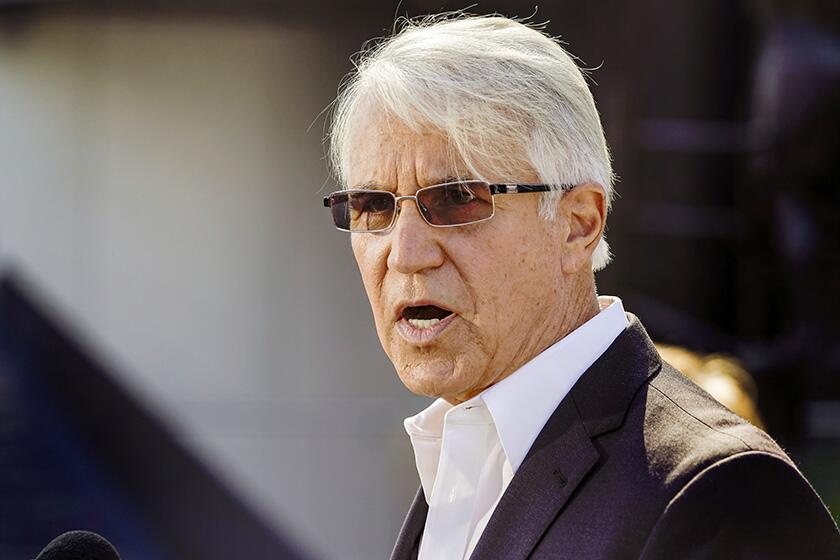Gay marriage at the polls

Ever since Proposition 8 passed four years ago banning same-sex marriage in California, polls have been showing a shift in the other direction — increased public support around the country for extending marriage rights to gay and lesbian couples. With same-sex marriage measures on four state ballots, the November election will provide the first major test of how much attitudes have progressed on the matter.
In three of those states — Maine, Maryland and Washington state — courageous legislatures passed bills in favor of same-sex marriage. In both Maryland and Washington, the bills were signed into law earlier this year but were placed on hold when opponents forced referendums that will ask voters whether they, also, approve of allowing the states to issue marriage certificates to gay and lesbian couples.
In Maine, the law was approved in 2009, then overturned by referendum. The issue is back on the ballot in the hopes that voters will reverse themselves and approve marriage equality. In Minnesota, it is already prohibited; voters will decide whether to embed that ban in the state constitution.
Four years after Proposition 8: How would California vote now?
Poll results in the three states that might legalize same-sex marriage are encouraging. If any of the measures pass, it would be the first time that such rights have become law via a popular vote.
The Proposition 8 campaign in 2008 left California behind the curve on extending this basic civil right to all Americans. It’s with a little selfish sadness that we cheer efforts in other states and hope they show that the bad old days are over.
So what has changed in the last few years since Proposition 8 passed with 52% of the vote? Part of the shift has been the aging of teenagers to voting age. Younger people from almost every demographic tend to accept same-sex marriage. And supporters of gay marriage in the three states have raised far more money than opponents.
But even more heartening are the findings of the moderate Third Way think tank in Washington, which recently reported that much of the popular shift comes from people simply changing their minds. Support for same-sex marriage has increased by 16 percentage points since 2004, Third Way reported, with major shifts across all demographic groups.
The change isn’t so surprising. Given the opportunity to observe states that have extended marriage equality to gay and lesbian couples, people can see that the arguments employed in the Proposition 8 campaign were simply scare tactics. In the six states (plus Washington, D.C.) where same-sex marriage is now legal, the institution of marriage has not been degraded in any way. All that has happened is that more couples who were ready to make a permanent and loving commitment were able to do so.
More to Read
A cure for the common opinion
Get thought-provoking perspectives with our weekly newsletter.
You may occasionally receive promotional content from the Los Angeles Times.










